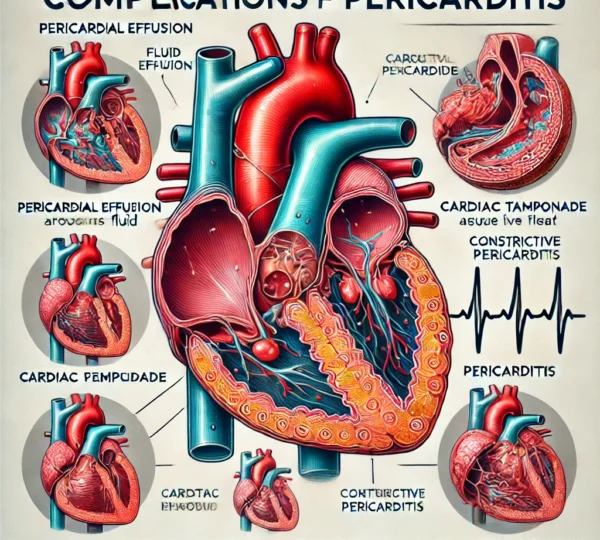Complications of Pericarditis: What You Need to Know
Navigating Pericarditis Complications: What You Should Know
Hey there, health-conscious readers! Dealing with pericarditis can be challenging, but understanding its complications is crucial for staying informed and proactive. In this article, we’ll explore some common complications of pericarditis and what you need to know to stay ahead.
Common Complications of Pericarditis
Pericardial Effusion
In some cases of pericarditis, fluid may accumulate in the pericardium (the sac around the heart). This condition is called pericardial effusion. When fluid builds up, it can place pressure on the heart and impair its function. Recognizing this condition early is vital. Treatment usually involves draining the fluid to relieve the pressure and restore heart function.
Cardiac Tamponade
If pericardial effusion becomes severe, it may lead to cardiac tamponade, a life-threatening condition. In cardiac tamponade, the fluid compresses the heart, preventing it from pumping blood effectively. This results in a sudden drop in blood pressure. Immediate medical attention is essential. Early intervention can help save lives and prevent serious complications.
Constrictive Pericarditis
Chronic or recurring pericarditis can result in constrictive pericarditis. This occurs when the pericardium thickens and becomes rigid. As a result, the heart cannot expand and fill with blood properly. Patients with constrictive pericarditis may experience symptoms like fatigue, swelling, and shortness of breath. Treatment often involves medications or, in some cases, surgery to remove the thickened pericardium.
How Pericarditis Affects the Heart’s Rhythm
Arrhythmias
Pericarditis can disrupt the heart’s electrical signals, leading to arrhythmias (abnormal heart rhythms). Most arrhythmias associated with pericarditis are mild and temporary. However, some arrhythmias can lead to more serious issues. In such cases, treatment may be required to restore normal heart rhythm and prevent long-term heart damage.
Heart Failure from Pericarditis
Heart Failure
In severe cases or when pericarditis is left untreated, it can eventually lead to heart failure. Heart failure occurs when the heart cannot pump enough blood to meet the body’s needs. Symptoms may include shortness of breath, swelling in the legs, and chronic fatigue. Managing pericarditis early on can help prevent the development of heart failure.
Conclusion
In conclusion, while pericarditis complications are rare, being aware of them can help you stay proactive. If you experience symptoms like chest pain, difficulty breathing, or fainting, seek medical help immediately. By staying informed and taking prompt action, you can reduce your risk of complications like cardiac tamponade, arrhythmias, and heart failure.
To seek medical advice, always consult a Doctor. Here are our recommended experts. Click here
To read more on Heart Disease . Click Here



